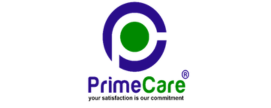
Implementation, Consulting, Auditing & Certification at one place . We focus on taking your business to new heights.
ISO 55001 Certification in Uganda is the international standard for asset management system in Uganda. Asset management is a critical aspect of any organization that owns or operates physical assets. To optimize asset performance and ensure their long-term sustainability, businesses seek a structured approach. This is where ISO 55001 Certification comes into play. ISO 55001 accreditation in Uganda refers to the formal recognition and authorization given to a Certification body or organization that has demonstrated competence and compliance with the requirements for conducting ISO 55001 audits and Certification Uganda.
ISO 55001 is an international standard developed by the International Organization for Standardization (ISO) to provide guidelines for an effective asset management system. It sets the foundation for organizations to establish, implement, maintain, and continually improve their asset management process in Uganda. The Certification ensures that organizations manage their assets efficiently and effectively, optimizing their value and contributing to their overall business objectives.
The process of implementing ISO 55001 Certification in Uganda involves the following practical steps:
Organizations need to identify all their assets, including physical, financial, and intangible assets, to establish a robust asset management system.
Determining the criticality of assets and analyzing potential risks associated with them is crucial to prioritize and allocate resources effectively.
Based on asset criticality and risk assessment, organizations can develop tailored maintenance strategies to ensure optimal asset performance.
Utilizing advanced asset tracking tools and implementing efficient data management systems are essential for effective asset management.
Providing ISO 55001 training in Uganda to employees in their organization involved in asset management ensures they possess the necessary skills and knowledge to carry out their roles effectively.
Establishing key performance indicators (KPIs) and regular reporting mechanisms enables organizations to monitor asset performance and make data-driven decisions.
An ISO 55001 audit in Uganda is a formal assessment conducted to evaluate an organization’s asset management system against the requirements specified in the ISO 55001 compliance in Uganda. The audit aims to determine if the organization’s asset management practices comply with the standard and whether the system is effectively implemented and maintained.
Here’s an overview of the ISO 55001 audit process in Uganda:
The ISO 55001 audit is a critical step in the Certification process and helps organizations identify areas for improvement in their asset management practices, leading to enhanced asset performance and value.
Obtaining ISO 55001 Certification in Uganda offers numerous advantages to organizations, including:
ISO 55001 Certification is applicable to various industries and organizations that manage assets as part of their operations. Any organization, regardless of its size or type, can seek ISO 55001 Certification if it manages assets that have a significant impact on its performance and business objectives. Some of the industries eligible for ISO 55001 Certification include:
ISO 55001 Certification in Uganda offers a multitude of benefits for organizations looking to enhance their asset management practices. However, many businesses may wonder about the cost implications of obtaining this prestigious Certification.
Factors Affecting ISO 55001 Certification Cost in Uganda:
The cost of ISO 55001 Certification can vary based on several factors, including:
The size and complexity of an organization’s asset management system significantly impact the Certification cost. Larger and more complex organizations may require more extensive audits and documentation, leading to higher costs.
Before pursuing ISO 55001 Certification in Uganda, organizations often conduct a gap analysis to identify areas that need improvement to meet the standard’s requirements. The cost of this preparation phase should be considered as part of the overall Certification cost.
Many organizations seek assistance from external Consultants to guide them through the Certification process. The fees for consultancy services can vary depending on the consultant’s expertise and the scope of their involvement.
Achieving ISO 55001 Certification requires the dedication of internal resources, including employee time and effort. Organizations need to account for the cost of these resources in their Certification budget.
The Certification body responsible for conducting the audit and awarding the ISO 55001 Certification in Uganda may charge fees for their services.
Training employees on ISO 55001 requirements in Uganda and asset management best practices may incur additional costs.
Implementing ISO 55001 in Uganda, the international standard for asset management, requires careful planning, expert guidance, and a deep understanding of the standard’s requirements. ISO 55001 consulting services in Uganda play a crucial role in helping organizations navigate the Certification process and achieve asset management excellence. In this article, we will explore the significance of ISO 55001 consulting and the benefits it brings to organizations.
Partnering with ISO 55001 consultancy in Uganda offers numerous benefits to organizations:
ISO 55001 Consultants in Uganda bring in-depth knowledge of asset management best practices and the ISO 55001 standard, ensuring organizations receive expert advice and guidance.
With ISO 55001 consultancy in Uganda support, organizations can streamline their ISO 55001 implementation process, saving time and resources.
ISO 55001 Consultants in Uganda tailor their services to meet the specific needs and objectives of each organization, ensuring the asset management system aligns with their unique requirements.
By identifying potential gaps and non-conformities early on, Consultants help organizations proactively address issues and reduce the risk of non-compliance during the formal Certification audit.
Consultants emphasize continuous improvement, guiding organizations to evolve their asset management practices to achieve long-term excellence.
ISO 55001 consulting services in Uganda play a vital role in guiding organizations towards achieving asset management excellence. By partnering with experienced Consultants, organizations can streamline their Certification process, mitigate risks, and implement effective asset management practices. Investing in ISO 55001 Certification consulting is an investment in the organization’s long-term success and competitiveness in today’s dynamic business environment.











 swathi likithOur data privacy journey reached new heights with B2BCERT's ISO 27018 certification support. Their consultants not only helped us comply with privacy standards but also ensured that our customers have confidence in our commitment to protecting their personal information.
swathi likithOur data privacy journey reached new heights with B2BCERT's ISO 27018 certification support. Their consultants not only helped us comply with privacy standards but also ensured that our customers have confidence in our commitment to protecting their personal information. balaji bala (benak)Our commitment to occupational health and safety was fortified with B2BCERT's OHSAS 18001 certification support. Their consultants helped us create a safer work environment, instilling a culture of well-being among our employees..
balaji bala (benak)Our commitment to occupational health and safety was fortified with B2BCERT's OHSAS 18001 certification support. Their consultants helped us create a safer work environment, instilling a culture of well-being among our employees.. Nayana ManoharOur journey to GDP certification for pharmaceutical distribution was streamlined and successful thanks to B2BCERT. Their experts ensured that our distribution processes prioritized product safety and quality, giving peace of mind to both us and our clients.
Nayana ManoharOur journey to GDP certification for pharmaceutical distribution was streamlined and successful thanks to B2BCERT. Their experts ensured that our distribution processes prioritized product safety and quality, giving peace of mind to both us and our clients. Prasad GowdaB2BCERT's support in achieving ISO 13485 certification was a turning point in our medical device company. Their focus on product quality and patient safety was unwavering, and we are now a trusted name in the healthcare industry.
Prasad GowdaB2BCERT's support in achieving ISO 13485 certification was a turning point in our medical device company. Their focus on product quality and patient safety was unwavering, and we are now a trusted name in the healthcare industry. Saldagu UmaWe achieved ISO 26000 certification with B2BCERT's assistance, and it has transformed our approach to corporate social responsibility. Their expertise in implementing socially responsible practices has positively impacted our stakeholders and strengthened our reputation."
Saldagu UmaWe achieved ISO 26000 certification with B2BCERT's assistance, and it has transformed our approach to corporate social responsibility. Their expertise in implementing socially responsible practices has positively impacted our stakeholders and strengthened our reputation." Lakshmikanth PSB2BCERT's support in obtaining ISO 50001 certification has revolutionized our energy management practices. Their expertise in energy efficiency and conservation enabled us to reduce costs and environmental impact. Our ISO 50001 certification showcases our dedication to sustainable energy practices.
Lakshmikanth PSB2BCERT's support in obtaining ISO 50001 certification has revolutionized our energy management practices. Their expertise in energy efficiency and conservation enabled us to reduce costs and environmental impact. Our ISO 50001 certification showcases our dedication to sustainable energy practices. Ramya NaikWith B2BCERT's ISO 28000 certification services, our supply chain security received a significant boost. Their supply chain experts ensured that our operations align with global security standards, enhancing our resilience against potential threats.
Ramya NaikWith B2BCERT's ISO 28000 certification services, our supply chain security received a significant boost. Their supply chain experts ensured that our operations align with global security standards, enhancing our resilience against potential threats. ULLAS J NAIKWith B2BCERT, our ISO 27001 certification journey was marked by a heightened sense of cybersecurity. Their consultants not only helped us meet standards but also empowered us to fortify our digital defenses against evolving threats.
ULLAS J NAIKWith B2BCERT, our ISO 27001 certification journey was marked by a heightened sense of cybersecurity. Their consultants not only helped us meet standards but also empowered us to fortify our digital defenses against evolving threats. NACHIKET NAIKB2BCERT's support in achieving ISO 22716 certification for cosmetics manufacturing was invaluable. Their industry-specific knowledge and attention to detail ensured that our products meet the highest quality and safety standards.Showing our latest reviews
NACHIKET NAIKB2BCERT's support in achieving ISO 22716 certification for cosmetics manufacturing was invaluable. Their industry-specific knowledge and attention to detail ensured that our products meet the highest quality and safety standards.Showing our latest reviews
WhatsApp us
